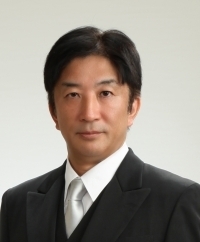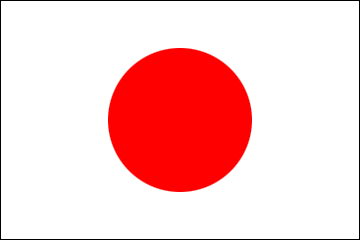Message from Ambassador KANO Takehiro
2024/1/4
 Ambassador KANO Takehiro
Ambassador KANO Takehiro
Happy New Year!
I am KANO Takehiro, Ambassador Extraordinary and Plenipotentiary and Permanent Delegate of Japan to the United Nations Educational, Scientific and Cultural Organization (UNESCO). I arrived in Paris in late December last year.
UNESCO is an international organization familiar to many Japanese people, and I am honoured to serve on behalf of the Japanese government.
"Since wars begin in the minds of men, it is in the minds of men that the defences of peace must be constructed."
This is a famous passage from the Constitution of UNESCO adopted immediately after the end of World War II.
The spirit of the Constitution was a message of hope for many Japanese people who were working on post-war reconstruction and reintegration into the international community. After regaining independence in 1951, Japan became a member of UNESCO, prior to joining the United Nations.
Nearly 80 years have passed since the adoption of the Constitution, and unfortunately, various conflicts have emerged across Europe, the Middle East, Africa, and Asia. The free and open international order based on the rule of law, which was expected to be established after the end of the Cold War, has greatly deteriorated amid opposition to globalization and historical conflicts rooted in ethnic and religious differences.
In times like these, we need to redouble diplomatic efforts to rebuild collaboration among the nations, reinvigorating the spirit of the United Nations Charter and the UNESCO Constitution. In this context, I believe that the expectations for UNESCO’s role are greater than ever. UNESCO, as its name suggests, is an international organization whose purpose is to contribute to peace and security by promoting collaboration among the nations through education, science, and culture. Japan has consistently supported these activities of UNESCO.
Supporting developing countries in the field of education is an activity that UNESCO has been engaged for many years. Japan has regarded human resources development as the basis of nation building, and so actively supports UNESCO in this area.
There are an increasing number of issues that require international cooperation based on scientific knowledge, such as climate change, water management, and artificial intelligence (AI). UNESCO is an important international platform for this purpose, and Japan will be engaged in various types of cooperation, including the efforts to create international norms.
International cooperation in cultural areas, including World Heritage Sites, is UNESCO's best-known activity. It is also a framework for helping the Japanese culture better understood in the world. Currently, we are proposing “Sado Island's Gold Mine'' as a World Cultural Heritage Site, “Traditional Sake Brewing'' as an Intangible Cultural Heritage, and “Three Editions of Buddhist Sacred Canons stored at Zojoji'' and “Visual archives of Hiroshima Atomic Bombing - Photographs and films in 1945'' as International Memory. We will thoroughly explain their significance in order to achieve registration this year. At the same time, we will actively support UNESCO's efforts to protect and restore cultural heritage sites around the world that are at risk due to conflicts.
The UNESCO Constitution also states:
"the peace must be founded, if it is not to fail, upon the intellectual and moral solidarity of mankind."
With this spirit in mind, I will actively promote Japan's diplomacy in UNESCO.
Thank you for your understanding and support.
I am KANO Takehiro, Ambassador Extraordinary and Plenipotentiary and Permanent Delegate of Japan to the United Nations Educational, Scientific and Cultural Organization (UNESCO). I arrived in Paris in late December last year.
UNESCO is an international organization familiar to many Japanese people, and I am honoured to serve on behalf of the Japanese government.
"Since wars begin in the minds of men, it is in the minds of men that the defences of peace must be constructed."
This is a famous passage from the Constitution of UNESCO adopted immediately after the end of World War II.
The spirit of the Constitution was a message of hope for many Japanese people who were working on post-war reconstruction and reintegration into the international community. After regaining independence in 1951, Japan became a member of UNESCO, prior to joining the United Nations.
Nearly 80 years have passed since the adoption of the Constitution, and unfortunately, various conflicts have emerged across Europe, the Middle East, Africa, and Asia. The free and open international order based on the rule of law, which was expected to be established after the end of the Cold War, has greatly deteriorated amid opposition to globalization and historical conflicts rooted in ethnic and religious differences.
In times like these, we need to redouble diplomatic efforts to rebuild collaboration among the nations, reinvigorating the spirit of the United Nations Charter and the UNESCO Constitution. In this context, I believe that the expectations for UNESCO’s role are greater than ever. UNESCO, as its name suggests, is an international organization whose purpose is to contribute to peace and security by promoting collaboration among the nations through education, science, and culture. Japan has consistently supported these activities of UNESCO.
Supporting developing countries in the field of education is an activity that UNESCO has been engaged for many years. Japan has regarded human resources development as the basis of nation building, and so actively supports UNESCO in this area.
There are an increasing number of issues that require international cooperation based on scientific knowledge, such as climate change, water management, and artificial intelligence (AI). UNESCO is an important international platform for this purpose, and Japan will be engaged in various types of cooperation, including the efforts to create international norms.
International cooperation in cultural areas, including World Heritage Sites, is UNESCO's best-known activity. It is also a framework for helping the Japanese culture better understood in the world. Currently, we are proposing “Sado Island's Gold Mine'' as a World Cultural Heritage Site, “Traditional Sake Brewing'' as an Intangible Cultural Heritage, and “Three Editions of Buddhist Sacred Canons stored at Zojoji'' and “Visual archives of Hiroshima Atomic Bombing - Photographs and films in 1945'' as International Memory. We will thoroughly explain their significance in order to achieve registration this year. At the same time, we will actively support UNESCO's efforts to protect and restore cultural heritage sites around the world that are at risk due to conflicts.
The UNESCO Constitution also states:
"the peace must be founded, if it is not to fail, upon the intellectual and moral solidarity of mankind."
With this spirit in mind, I will actively promote Japan's diplomacy in UNESCO.
Thank you for your understanding and support.
- CV(PDF)
 (140KB)
(140KB)
